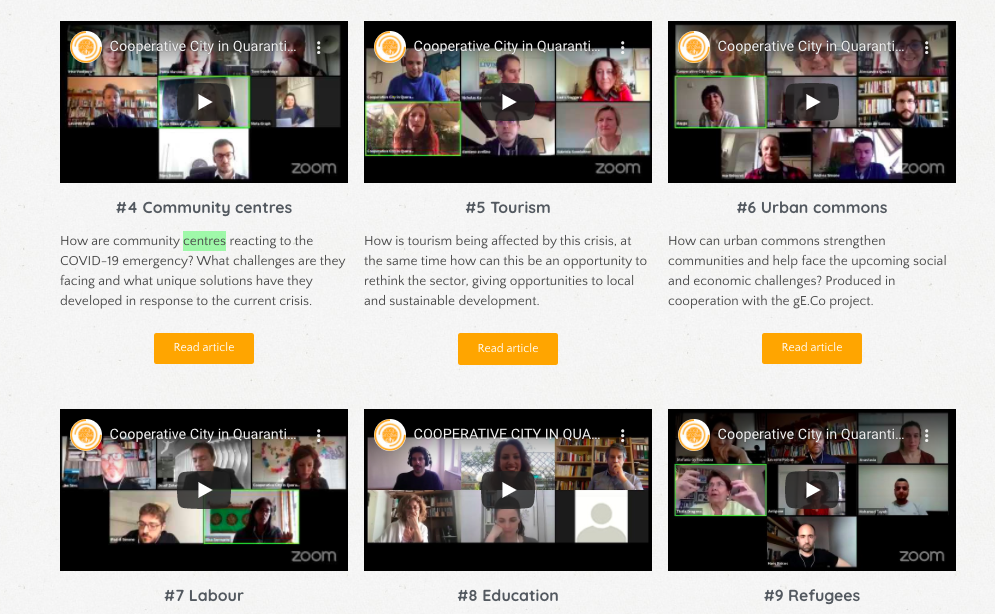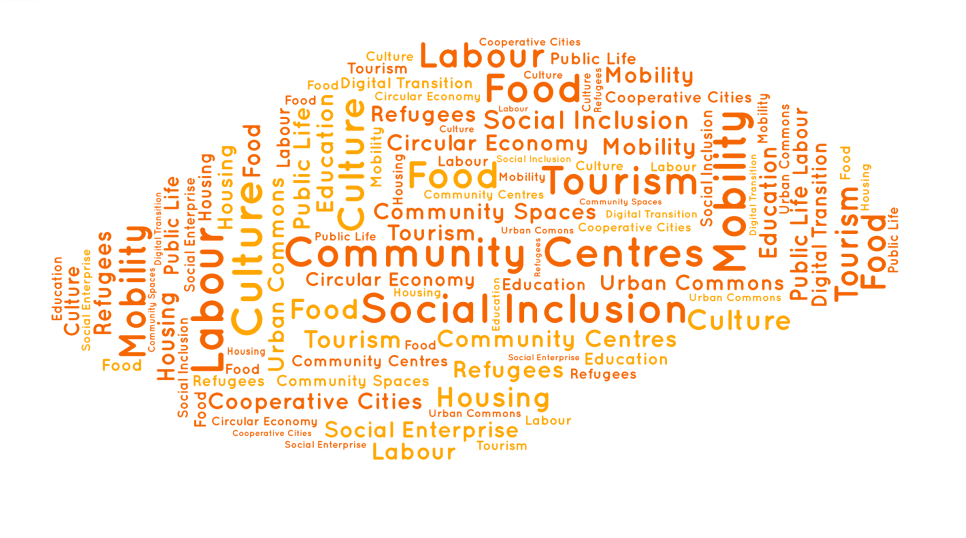Interview with Daniela Patti, Director of Eutropian by the European Urban Knowledge Network.
How can we prepare for and cope with crisis situations in dense urban settings?
It is evident that the current COVID-19 pandemic is causing critical damage in both physical and psychological terms to all fields of life. We are living through hard times, most of us still isolated and fearful in our homes, with little clarity about what a post-COVID-19 reality will look like.
However, despite all the challenges urban settings are facing across the world, many people have gathered their energies to start up solidarity actions and networks to help their communities. In an attempt to narrate community resilience during the COVID-19 emergency, since March, Eutropian has brought these stories of resilience and solidarity to everyone directly to their homes, sharing hopes and inspiration to deal with the present challenges and plan better cities. We do this every week with the Cooperative City in Quarantine public webinars, focusing on various aspects of the crisis. So far, we’ve dealt with topics ranging from community development, food production and distribution, to culture, community centres, tourism, urban commons, education, public space and labour.

If Eutropian had already witnessed the power of social cohesion in overcoming critical events, in the weekly webinars of Cooperative City in Quarantine, colleagues from all over the world have further demonstrated to us the importance of placing social cohesion at the centre of our priorities. Today, we are witnessing the widespread experimentation of social economy strategies that will be key to us collectively overcoming the impending socio-economic crisis that will inevitably result from COVID-19.
The current pandemic is teaching us about urban resilience as a lived reality across different cities
Civil society has been a hotbed of fantastic, swift reactions to the crisis since the initial outbreak of the virus. Civil society actors have often been faster even than governments and municipalities, providing new services and protecting the most vulnerable members of their communities as soon as the crisis hit[1]. We see civil society initiatives being at the core of urban resilience actions.From food production and distribution, to culture, tourism and community centres, we are witnessing the need to reinvent the way we produce, consume and distribute, reconnecting to the local dimension for resources and inspiration. This is a notion that has been floating around for a while now, but the challenge has always somehow only been partially accepted.
Today, the emergency generated by this pandemic is providing us with a different set of lenses to look at local and neighbourhood scale interventions no longer as simply “nice options”, but rather as critical tools for survival. The idea of the urban commons (as solidarity and sharing community-based practices) is exemplary here: their crucial role in the delivering of essential welfare services to the marginalised members of the community has been proven by the crisis[2]. The current pandemic is teaching us that cities host strong, resilient networks of community actors.

However, the local efforts made during this emergency in a variety of sectors – from culture to food, and beyond – could be lost if public authorities and municipalities fail to support them in the long-term. Now is the time for such authorities to provide strong social security conditions and public funds to ensure the continuation of such community networks and initiatives.
What we’re doing at Eutropian to collectively conceive the “post-COVID-19” city
Many cities are developing their post-COVID-19 plans, Milan among others. Although this could indeed lead to major positive changes in the way we inhabit cities, I believe we need to create more space for discussion in order for the process to be inclusive and sustainable in the long-term. This is what we do with Cooperative City in Quarantine webinars, opening up a virtual space for reflection, sharing the experiences of professionals, municipalities, associations and informal groups from around the world. We aim to share inspirational resilience stories and reflect on the concept of the post-COVID-19 city.
However, we are aware that cooperation and solidarity need physical contact and, most importantly, action. It is not easy to think and talk about action, though, in such an uncertain period. Our webinars allow urban practitioners to share responses to common social needs: but any projects we talk about or brainstorm need to be picked up by the main decision-makers and financial actors in order to be upscaled. First, though, we hope to facilitate open discussion so that we can develop a common and transitionary direction for the post-COVID-19 city that leaves nobody behind.
[1] Cooperative City in Quarantine #4, April 16th 2020: https://cooperativecity.org/2020/04/16/cooperative-city-in-quarantine-4-community-centres/
[2] Cooperative City in Quarantine #6, April 30th 2020: https://cooperativecity.org/2020/04/30/cooperative-city-in-quarantine-6-urban-commons/


